- Home
- Martin Archer
Gulling The Kings Page 7
Gulling The Kings Read online
Page 7
Joseph and I nocked heavies ourselves. No sense taking chances.
****** Lieutenant Peter
Three of the four Germans approaching us were wearing particularly fine armour with the distinctive cross of the Teutonic knights on their shields and riding absolutely splendid horses; the fourth was a fat priest wearing a bishop’s mitre and carrying a crosier.
The three knights were Teutonic knights for sure, and rich ones at that. We, on the other hand, were wearing our plain Egyptian tunics with the broad stripes of our ranks on their front and back; our horses were smaller and, although the Germans might not know it, amblers which were undoubtedly made them much faster than the knights’ horses and capable of going greater distances.
The Germans were coming to talk and we were willing to listen, at least for a while.
We reined in our horses and waited as the Germans approached. They stopped about twenty paces away from us and we looked at each other impassively. Their swords were sheathed.
After a few moments, the elegantly attired German knight who appeared to be in charge raised his arm with his hand open to signify his peaceful intentions and desire to talk. He slowly walked his horse forward when I nodded my agreement. The others followed and we were soon facing one another in a small group—beyond them I could see the halted German column; beyond us they could see my line of archers on the side of the hill.
“Greeting in the name of God and Emperor Otto of the Holy Roman Empire,” the elegant knight said through the bishop who acted as his interpreter and spoke to us in church-talk.
“I am Heinrich Von Hildesheim, a knight of the Teutonic order and commander of Emperor Otto’s forces in England.”
We never did learn the bishop’s name, although it was obvious he was a bishop because he was wearing a mitre and a bishop’s robe. Using him as their interpreter was probably an attempt to convince us that the Germans had God on their side. If so, it didn’t work and, in view of how things turned out, it clearly wasn’t true.
Von Hildesheim announced himself with much pride and arrogance as if it would impress us and cause us to cower in fear. At that moment I knew he would not accept the offer I was about to make him.
“Yes, we know who you are,” I replied. “My men and I have been looking for you. I am Peter, the first lieutenant of William from Kent, the captain of the Company of English Archers based in Cornwall and the hereditary commander of the Papal Order of Poor Landless Sailors.”
That’s how Thomas said I should introduce myself to pompous lords who are full of themselves; it didn’t seem to have much effect on Von Hildesheim.
“And these are some of Captain William’s men,” I said with a sweep of my arm towards the archers standing in their ranks on the hillside behind me. We have been looking for you and your band of outlaws. You are on our lands and have attacked our people and murdered innocent women and children.
“Fortunately for you, Captain William is a generous man and he’s willing to spare your lives because you’ve lost so much already and your king is known to be a friend of King John. But you must return to your transports at St. Ives and leave England immediately. We have left some of your transports there so you can board them and sail away in safety.
“You are a commoner. Who is your lord?”
“That was the German’s reply. It was delivered rather arrogantly as Von Hildesheim ignored my question and my offer to let him and his men leave England in peace. He had heard my name and looked at my clothes and found them wanting. Looking at a man’s birth and his clothes instead of at his ability and weapons is a common mistake amongst those who fancy themselves to be important, isn’t it?
“I just told you who I am,” I said with a touch of brass in my voice. “Now answer my questions. Why have you and your men been killing innocent women and children? And will you and your men leave peacefully or not?”
“Enough of this,” the German said angrily once Joseph had repeated my words in church-talk and they’d been translated by the German bishop. “I am told you have taken our coins and the emperor’s chancellor with a cowardly surprise attack and captured them; is it true? If it is, you must either return them to us immediately or we shall destroy you and your men and your lands.”
“I would be happy to return your chancellor, Sir Knight, although I doubt he’ll do your emperor much good being as he’s already dead and rotting. And only because your emperor is a friend of King John, I’m also willing to return a few of your transports so you can squeeze your men in and take them back home; the coins and your war galleys we’re keeping as the spoils of war—the war you and your men started.”
“He's dead? The chancellor is dead? How can that be?” Von Hildesheim demanded. All four of the Germans appeared to be genuinely shocked at the news. He must have been important.
“How? Probably because he stopped breathing when we hung him,” I suggested with as nasty a smile as I could muster. “Think of it as we do—as God’s revenge on cowardly knights and priests who are so weak and feeble that they have to kill women and children in order to rob them.
“Your chancellor is in purgatory, Sir Knight,” I continued as I poked my poking finger at the knight to emphasize what I was saying, “and will probably be there forever; as you and your men will soon be if you don’t get yourselves straight back to what’s left of your transports and leave England on the next tide,”
I leaned forward as I said it with a mean look on my face. I don’t like this arrogant son of a bitch.
“Get used to it, Von Hildesheim, or whatever your disgraceful name is,” I continued with disdain in my voice as Joseph gobbled away to put my words into church-talk for the German bishop to pass on to the Germans.
“We’re keeping your coins, as well as all of your galleys and the best of your transports, to pay for the damage you German peasants and disgraceful knights have so bravely caused by fighting unarmed men and innocent women and children.” I said it with a sneer, a disgusted shake of my head, and a dismissive wave of my hand as if they were bugs to be waved away.
As the German bishop translated my words, it was clear from the expressions on Von Hildesheim’s face and those of his fellow knights that I had greatly insulted them, as I had intended, by calling them peasants and implying they were cowards. Making an enemy angry so he acts rashly is always a good move when you are outnumbered.
“Attention to your manners when you talk to your betters,” was the German’s response as his face got redder and redder and the men with him began muttering to each other. “We will stay in England until we get our coins and the relics: so you might as well save yourselves and turn them over to us.”
“Achtung, yourself, you fool. You’re not one of my betters and never will be; and you and your fellow Germans staying in England forever in shallow graves is much more likely than any of you ever seeing your coins and galleys again or getting the relics,” I replied as I nodded my head to agree with myself. The two horse archers who’d ridden out with me were smiling. They’d have stories to tell their mates when we re-joined our men.
“Listen here, English,” was Von Hildesheim’s angry response. The man was furious. “I’ve had enough of this foolishness. Either you surrender to us right now and return the coins or we will destroy you. We have you outnumbered and it is obvious that you have no knights to do your fighting.”
“Bah,” I said as I shook my head in disgust, and then chuckled.
“That’s no threat to me or my captain or our men because we know your reputations—you Teutonic knights are well known to be cowards who send their peasants and serfs forward to do their fighting while you cower in the rear and bugger each other’s arses.” I was baiting him don’t you see? We’d fetch a pretty penny for that fine armour he and his friends are wearing. William did the same thing years ago at Okehampton, didn’t he? Baiting knights so they attack too soon, I mean.
“So I will say it one more time,” I said viciously as I pointed at him before he co
uld respond.
“Leave England whilst you and your men are still alive. We have left some of your transports for you at St. Ives. Either march to St. Ives and leave, or you and your men will all be left here to rot after the birds finish pecking out your eyes.”
I didn’t give the bishop time to finish translating from Joseph’s church-talk to German before I added wood to the fire.
“Those are your only choices, Von Hildesheim, and your threats are meaningless. You German knights are well known to be cowards, men who always hang back and cower behind their peasant soldiers so you won’t have to fight and can run away if your peasants don’t win.
“But this time hanging back behind your foot so you can run away won’t work for you—because after we finish off your foot, we’ll use our faster horses to catch you and your cowardly knights and bring you down for the birds to peck on your eyes, all of you.” I used the word “behind” twice and leaned forward and emphasized it to make sure the knights knew I was calling them cowards.
It worked; I could see it on their faces. Von Hildesheim and his friends were absolutely seething at my insults as their now-subdued bishop softly repeated what Joseph told him I said with an apologetic look on his face. It was all they could do not to pull out their swords and attack us on the spot.
And with that I spit on the ground to show the German knights what I thought of them, wheeled my horse around, and the four of us ambled back to our men who were waiting in their ranks on the hillside. I wonder if I baited them enough.
Chapter Eleven
Fighting the Germans
Henry and I didn’t think we’d have to wait too long to find out what the Germans would do, and we were right. The insults I’d heaped on the honour of Von Hildesheim and his fellow knights virtually guaranteed that they would fight. But would they respond to my insults by fighting as we hoped with the knights leading the German charge so we could concentrate all of our arrows and pikes on them?
From the looks of things, we’d know soon enough—off in the distance in front of us we could see a great and somewhat disorganized-appearing mass of several thousand Germans that was gathering together and milling about. They were on the pasture land in front of the little hill where our archers stood and anxiously waited in their traditional seven-men-deep battle lines with their bladed pikes and arrows laid out on the ground around them.
A few of the German knights were on their horses, but most were dismounted and standing next their horses on the northern edge of the German foot massed immediately in front of us. The stolen farm wains which Raymond said were being used to carry their wounded and their foraged food supplies were off to the side and further away to the south with almost no one around them.
There was no dust despite all the Germans milling about because the ground was still wet from last night’s rain. But, to my surprise, there were whisps of smoke arising from several fires. Some of the German foot were apparently ignoring all the activity around them and had begun cooking food in the midst of all the confusion.
To my great surprise and delight, Raymond and his horse archers had ridden in to join us while we were out gobbling with the Germans. George was with them. I seriously considered dismounting the horse archers and putting them into our battle lines to reinforce our foot archers. Fighting on foot, after all, is the first thing every one of our archers is trained to do. Indeed, it was what Raymond had brought them in to do. Henry, however, had convinced me to use them elsewhere.
Henry pointed out that Raymond’s horse archers didn’t have their bladed pikes and large land-fighting shields with them and, as a result, would not be able fight effectively on foot against mounted knights. More importantly, he convinced me that the horse archers would be much more useful if they constantly harassed the Germans to distract them and whittle them down—and particularly if they launched their attacks on the German rear and flanks when the Germans began to move forward to attack us.
“It will throw them into confusion if Raymond’s men hit them in the rear at the same time they begin attacking us.”
Raymond had smiled and agreed with Henry, so that had become our plan. As a result, I could see the horse archers in the distance as I looked out over the valley below us—Raymond and about half of his available men, about forty of them, were clearly visible on their horses to the north of the great and milling mass of the German army; the other half of the horse archers under George’s command were barely visible as a dark spot on the ground to the south.
Both Raymond and George were obviously riding well away from the Germans’ crossbows while they waited for the German attack to begin. What they would do then would depend on the opportunities they saw when the Germans started up the hill to attack us; that they would seize whatever opportunities were presented to them, I had no doubt.
The Germans may not have realized it yet, but I’d tasked Raymond and George’s horse archers to be both our sheep dogs to nip at the German sheep and keep them herded together and our wolves which would dash in and slaughter them. There was a great deal of reality in that if you think about it—the longbows of our horse-riding archers had very sharp teeth and a deadly bite.
So far our horse archers had not done serious damage to the Germans, at least not yet according to Raymond, because the Germans have had enough crossbow men in their ranks to force our horsemen to keep their distance. That might be about to change—Von Hildesheim’s crossbow men could not be both spread out around the German flanks and rear to force our horse archers to keep their distance, and simultaneously be concentrated in front the German attackers to soften up the foot archers in our battle lines. But which would they do, or would they do something else? We did not know.
What Von Hildesheim and his men did not know, at least we thought they did not, was that the first three foot archers in every one of our seven-man files were carrying long-handled bladed pikes in addition to their longbows or that, while I was insulting them, Henry was assigning new positions to some of our ships’ companies of foot archers such that the men in our battle line were ready to move into a square on a moment’s notice.
The big question now, of course, is where and how would the Germans hit us and what would they do that we did not expect?
****** George
My men sat on our horses and talked softly among themselves as we watched Germans organise themselves for their attack. The battle lines of our outnumbered foot archers were clearly visible on gentle slope of the hill in front of the Germans. I wasn’t sure, but I suspected the only reason Peter hadn’t already marched his men down the hill to attack the Germans before they finished getting organized is that he was still hoping they would come to their senses and march away to St. Ives and their waiting transports.
About an hour ago, a party of about twenty German crossbow men came out to confront us. Each of them brought a big shield to hide behind that was carried by some kind of partner or servant. We were under strict orders not to reveal the range of our longbows or needlessly use up our arrows, so we just backed up our horses as needed to stay out of range of their quarrels. After a while, they gave up and returned to disappear into the milling mass of German foot assembling at the foot of the hill.
About an hour after the crossbow men retired, there was movement among the Germans. This time a number of crossbow-carrying men, perhaps as many as a hundred, and probably all those that the Germans had, came out of the German crowd began trudging up the hill towards our lines. Their lack of enthusiasm was apparent in the way they walked. At the same time the German knights mounted their horses and rode out of the German army, not towards our lines on the hill, but north towards me and my men.
“Follow me,” I shouted as I kicked my horse in the ribs.
My men followed me and we quickly galloped out of the knights’ path. The German knights didn’t turn to follow us and we didn’t chase after them and try to push arrows at them and shoot them down—we both had more important things to do. The knights were
obviously going to try to circle around and hit our battle line of foot archers on its flank while their foot went straight up the hill; we were going to wreak havoc on the German foot by closing with them and pushing out arrows to shoot them down, which we could do now that their crossbow men were no longer available to keep us out of range.
As we galloped back towards the German foot I saw a ripple of movement along the lines of our archers on the hill. I’d seen it many times before and knew exactly what was about to happen.
****** Lieutenant Peter
We watched as the German crossbow men began walking up the hill towards us and the German knights headed north to come around the hill and hit us in the flank or rear. I didn’t say a word to Henry—just held out my hand.
“Damn it,” grumbled Henry as he dug in his pouch and pulled out a coin to put in my waiting hand. “I didn’t think Von Hildesheim was smart enough to make those moves at the same time.” Both of our apprentice sergeants were grinning.
The German crossbow men walked warily forward and up the gradual slope of the hill until they passed the first of the little piles of rocks we had piled up to use as range markers. They were moving closer in order to get better shots because our men were crouched down and silent behind the shields of our lads in the front line. The Germans obviously had no idea about the range of our longbows. They were about to find out.

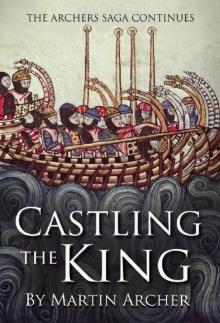 Castling The King
Castling The King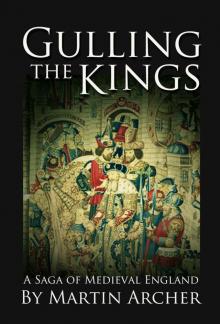 Gulling The Kings
Gulling The Kings Israel's Next War
Israel's Next War Our Next Great War
Our Next Great War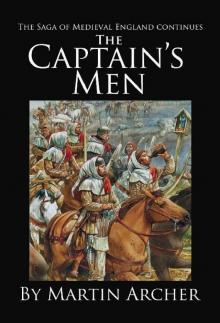 The Captain's Men
The Captain's Men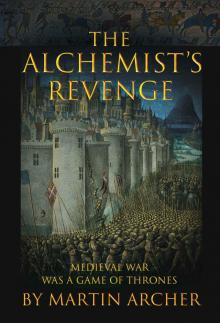 The Alchemist's Revenge
The Alchemist's Revenge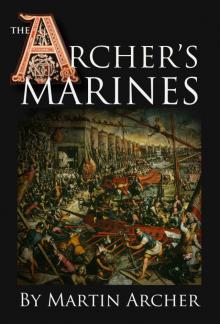 The Archer's Marines: The First Marines - Medieval fiction action story about Marines, naval warfare, and knights after King Richard's crusade in Syria, ... times (The Company of Archers Book 5)
The Archer's Marines: The First Marines - Medieval fiction action story about Marines, naval warfare, and knights after King Richard's crusade in Syria, ... times (The Company of Archers Book 5)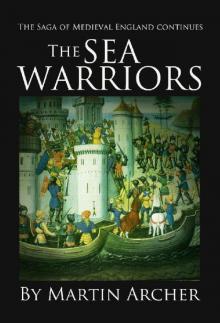 Sea Warriors
Sea Warriors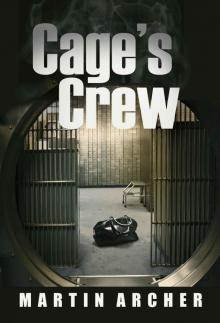 Cage's Crew
Cage's Crew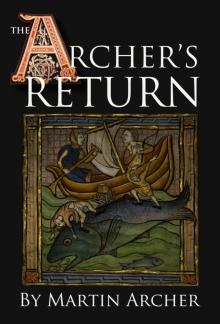 The Archer's Return: Medieval story in feudal times about knights, Templars, crusaders, Marines, and naval warfare during the Middle Ages in England in the reign of King Richard the lionhearted
The Archer's Return: Medieval story in feudal times about knights, Templars, crusaders, Marines, and naval warfare during the Middle Ages in England in the reign of King Richard the lionhearted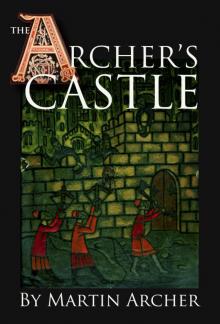 The Archer's Castle: Exciting medieval novel and historical fiction about an English archer, knights templar, and the crusades during the middle ages in England in feudal times before Thomas Cromwell
The Archer's Castle: Exciting medieval novel and historical fiction about an English archer, knights templar, and the crusades during the middle ages in England in feudal times before Thomas Cromwell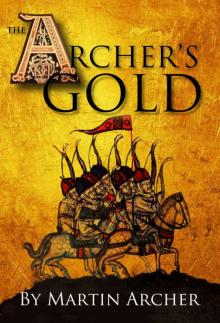 The Archer's Gold: Medieval Military fiction: A Novel about Wars, Knights, Pirates, and Crusaders in The Years of the Feudal Middle Ages of William Marshall ... (The Company of English Archers Book 7)
The Archer's Gold: Medieval Military fiction: A Novel about Wars, Knights, Pirates, and Crusaders in The Years of the Feudal Middle Ages of William Marshall ... (The Company of English Archers Book 7)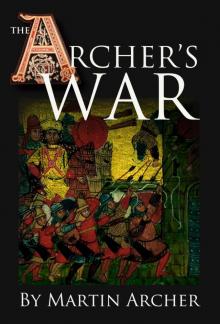 The Archer's War: Exciting good read - adventure fiction about fighting and combat during medieval times in feudal England with archers, longbows, knights, ... (The Company of English Archers Book 4)
The Archer's War: Exciting good read - adventure fiction about fighting and combat during medieval times in feudal England with archers, longbows, knights, ... (The Company of English Archers Book 4)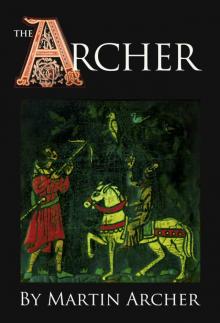 The Archer: Historical Fiction: exciting novel about Marines and Naval Warfare of medieval England set in feudal times with knights,Templars, and crusaders during Richard the lionhearted's reign
The Archer: Historical Fiction: exciting novel about Marines and Naval Warfare of medieval England set in feudal times with knights,Templars, and crusaders during Richard the lionhearted's reign